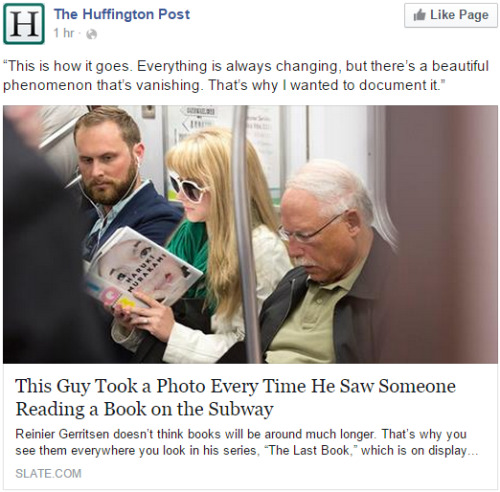copperbadge: writeswrongs:magenmagenmagen:seriousjones:shut…

shut uuuuuuuuuuuuuuuuuup
TECHNOLOGY IS SCARY WAAAAAAH
Some people make a living selling ebooks so go f-f-fuck yourself.
Book lovers need to know something about millenials:
-we don’t have a lot of money
-we often don’t have a lot of space
-and we move a lot more frequently than other generations might have
and that doesn’t even account for more severe realities, like abused women who lose everything they own when they are kicked out of their homes, or how poor young urban millenials of color are likely to fall behind on rent and be evicted – and yes that means losing all your physical possessions often including books.
The only books I still have right now are my ebooks. I swear to god every single time someone condemns me for “not caring” enough about “real” books I want to turn around and slap them upside the head. I HAD REAL BOOKS. IT WAS A LUXURY. THAT LUXURY WAS FORCIBLY TAKEN FROM ME. I CANNOT AFFORD THE SPACE AND TIME IT TAKES TO OWN PAPER COPY BOOKS ANYMORE. ALL I OWN ANYMORE IS DIGITAL INFORMATION BECAUSE PEOPLE KEEP TEARING MY PHYSICAL POSSESSIONS FROM ME.
When you meet millenials! Who are scared of owning physical things! It is likely because they moving sublet to sublet regularly. I know most of you know someone like this if you are not literally someone like this. You sort of maybe are out of your parents home but maybe not, and when you are out of your home or if you aren’t lucky enough to have parents that will let you stay at home, you stay on couches or live in someone else’s room while they’re gone and every couple of months to years you have to pack all your shit and leave. The providence of the poor is being hopelessly itinerant.
if you take the luxury of having physical books for granted and condemn ebooks you’re a classist and probably also a racist because mostly it’s old white people who write this stupid ass think pieces.
The sad thing is, the artist could change literally nothing about this project except how he talks about it and be making the exact statement above.
Photographing people with books could easily become a project about who can afford to buy, keep, and read books — the vanishing middle class, the wealthy, the non-disabled (who don’t need color filters or large print books or lightweight reading options that tablet readers offer to people with learning, vision, or physical challenges). They could talk about the economic savings to publishers, and the ecological impact of readers vs. books, the way we are destroying a different part of the ecosystem with each.
A provocative project about “the last book” could very easily be a statement on why people are moving away from printed books instead of a pointless nostalgic masturbation over some mythical lost intellectualism.
But he didn’t do that. He didn’t choose depth or self-examination. Which, in itself, is hilarious given the statements he did choose to make about “depth”.
Pretty fascinating reaction here.
On Poisoned Apples, the “Great YA Debate,” and the Death of the Patriarchy
On Poisoned Apples, the “Great YA Debate,” and the Death of the Patriarchy:
“Ah, here we are. Appropriate subjects for sophisticated narrative art. A serious novel is about things these gentlemen find serious—like the decline of the cultural authority of the straight white male. It astonishes me how endlessly fascinating some men find themselves.”
Good write up of the YA reading debate.
“The problem with our national lit isn’t just that it’s often written from the same voice; it’s…”
“The problem with our national lit isn’t just that it’s often written from the same voice; it’s written often to the same listeners. But if you changed the listeners, you change the art. Literally.”
– “If You Changed the Listeners, You Change the Art”: An Interview With Kiese Laymon.


